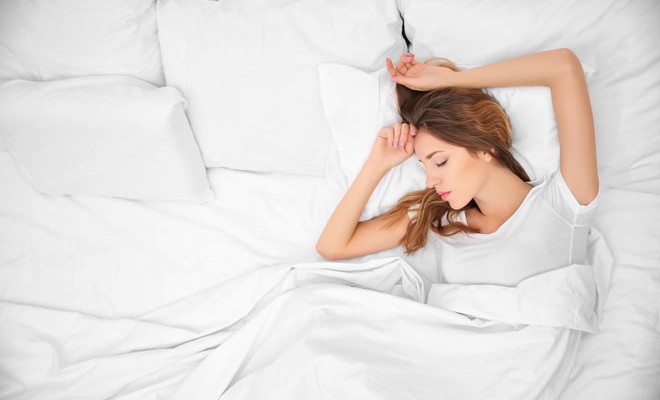
Are you paying attention to your sleep patterns? If not, you should because proper sleep is incredibly important to your health and overall well-being.
While there’s a laundry list of do’s and don’ts, we chatted with sleep expert Dr. Rebecca Robbins to debunk the five most common sleep myths.
Myth #1: You can get by on five hours of sleep
No, definitely not. Although your body could get used to it, more evidence shows that missing sleep could make you more susceptible to daytime fatigue and put you at risk for various diseases. Try to get about seven hours of sleep every night — if something throws off your sleep schedule, try to fit in a nap. Just don’t get too dependent on naps to fix your sleep habits.
Myth #2: Exercise over sleep
It’s true…a good sweat sesh can help you fall asleep faster and sleep better. However, don’t think that exercise trumps all. Dr. Robbins says, “When we are sleep deprived, we are less able to exert energy, so our workouts are not as good as when we are sufficiently rested.” If you want to work out hard, you have to sleep hard. The good news? It doesn’t matter if you work out in the morning or at night — you’ll reap the benefits as long as you give yourself time to power down and catch some z’s.
Myth #3: Your bedroom needs to be warm and cozy
As nice as it sounds, it won’t help you get more rest. Research shows you need a cool space — around 65 degrees. Whether you use a temperature regulating mattress or wear lighter pajamas, try anything that helps lower the temperature in your environment.
Myth #4: Drinking alcohol before bed can help you sleep
While we all like to indulge in a cocktail or two, Dr. Robbins says you can have small serving at night (phew) as long as you don’t overdo it. Try relaxing with some caffeine-free tea or sparkling water instead.
Myth #5: Lowering the brightness on your phone means it’s OK to use before bed
We know, this one’s tough. Dr. Robbins explains, “The human body is remarkably responsive to light exposure. Bright blue light triggers the alert phase of our circadian rhythm, so using devices such as smartphones or televisions that emit light at night can trigger the awake mechanism instead of the sleep mechanism in the brain.” With your phone by your side, it’s so easy to start checking social media or stay up watching the next episode of your favorite show. Resist the temptation and unwind with a little meditation, a good book, or by journaling.
xx, The FabFitFun Team




